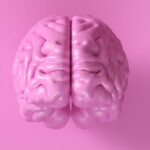The Connection Between Alzheimer’s and Depression
Alzheimer’s disease and depression are two conditions that have been linked in various studies. Understanding this connection can help us better manage and treat these conditions. Let’s explore how these two health issues are related.
### Alzheimer’s Disease
Alzheimer’s is a progressive condition that affects memory and cognitive functions. It is characterized by the buildup of amyloid plaques and tau tangles in the brain, leading to neurodegeneration. Women are more likely to develop Alzheimer’s, partly due to hormonal changes during menopause, which can affect brain health[4].
### Depression
Depression is a mood disorder that affects millions worldwide. It involves persistent feelings of sadness, loss of interest in activities, and changes in appetite or sleep. Depression can occur at any age but is particularly common in older adults.
### The Link Between Alzheimer’s and Depression
Research shows that a significant number of people with Alzheimer’s also experience depressive symptoms. Approximately 38-40% of individuals with dementia exhibit depressive symptoms, while about 16% are diagnosed with major depressive disorder[1]. This connection is not just coincidental; it is rooted in biological changes.
At the molecular level, both conditions involve neurodegeneration and neuroinflammation. Amyloid-β deposition, a hallmark of Alzheimer’s, is associated with increased depressive symptoms even in cognitively normal older adults. This suggests that depression could be an early indicator of Alzheimer’s[1].
Depression itself can lead to structural and functional brain impairments due to dysregulation of the hypothalamic-pituitary-adrenal axis, which increases glucocorticoid levels. These changes can exacerbate cognitive decline[1].
### Impact of Late-Life Depression
Late-life depression is particularly significant as it increases the risk of developing Alzheimer’s, especially vascular dementia and Alzheimer’s disease. Studies have shown that depressive symptoms in late life may signal the onset of dementia or share common underlying causes[1].
### Treatment and Prevention
While the exact mechanisms behind the Alzheimer’s-depression link are still being studied, there are promising approaches to manage these conditions. For instance, combining cognitive remediation with transcranial direct current stimulation (tDCS) has shown potential in slowing cognitive decline in older adults with mild cognitive impairment or remitted major depression[3].
In conclusion, the relationship between Alzheimer’s and depression is complex and multifaceted. Understanding this connection can help in developing more effective treatments and interventions to improve the quality of life for those affected by these conditions.



